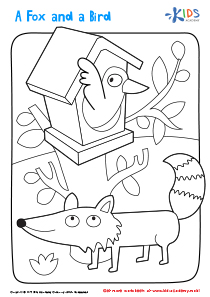Easy Tracing Words worksheets activities for 7-Year-Olds
1 filtered results
-
From - To


Easy Tracing Words worksheets activities stand out as a fundamental tool in the journey of literacy for young learners. These engaging and straightforward exercises play a crucial role in fostering the development of fine motor skills, enhancing letter recognition, and laying the foundation for successful writing abilities in children.
At the heart of Easy Tracing Words worksheets activities is the fine-tuning of motor skills. As children trace over letters, they learn to control their hand movements, which is essential for the development of precise writing skills. This practice not only prepares them for more complex writing tasks but also aids in other areas requiring fine motor abilities, such as tying shoes or using scissors.
Moreover, these activities provide an excellent avenue for letter recognition. By repeatedly tracing words, children become familiar with the shapes and sounds of letters, an essential step towards reading fluency. This repetitive exposure helps to imprint letters and words in young minds, making it easier for them to recall and recognize these elements in different contexts.
Furthermore, Easy Tracing Words worksheets activities serve as a bridge to writing proficiency. Before children can form letters independently, they need to understand the basic strokes that compose these letters. Tracing provides a guided practice that reinforces this understanding, making the transition to independent writing smoother and more intuitive.
These worksheets are also incredibly versatile, catering to various learning styles. Whether a child is a visual, auditory, or kinesthetic learner, tracing activities can be adapted to meet their individual needs, making learning more engaging and effective.
In conclusion, Easy Tracing Words worksheets activities are a vital resource in early childhood education. They not only support the development of fine motor skills and letter recognition but also pave the way for writing proficiency, all while catering to diverse learning preferences. By incorporating these activities into their learning routine, children are set on a path toward literacy success.
 Assign to the classroom
Assign to the classroom
.jpg)











